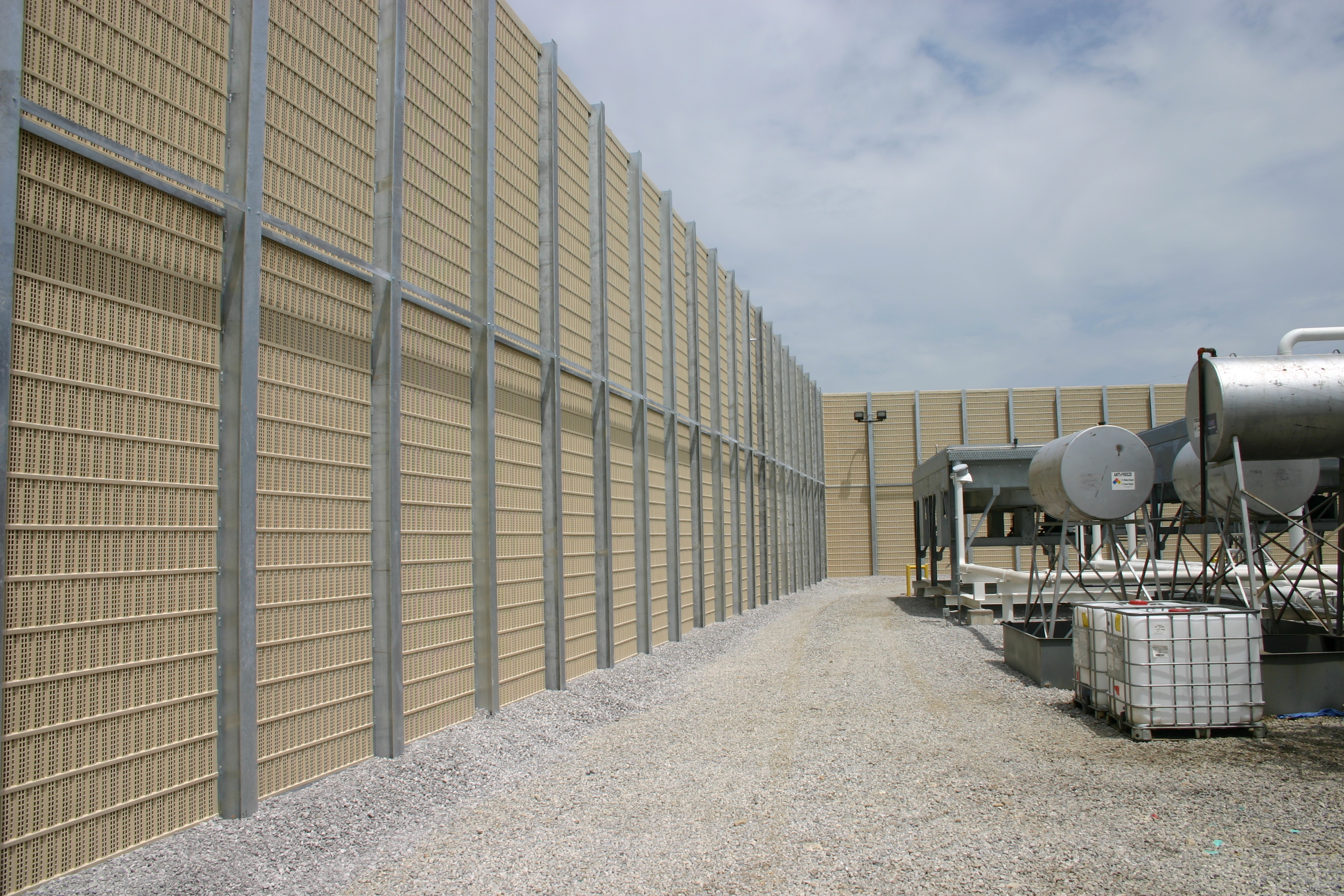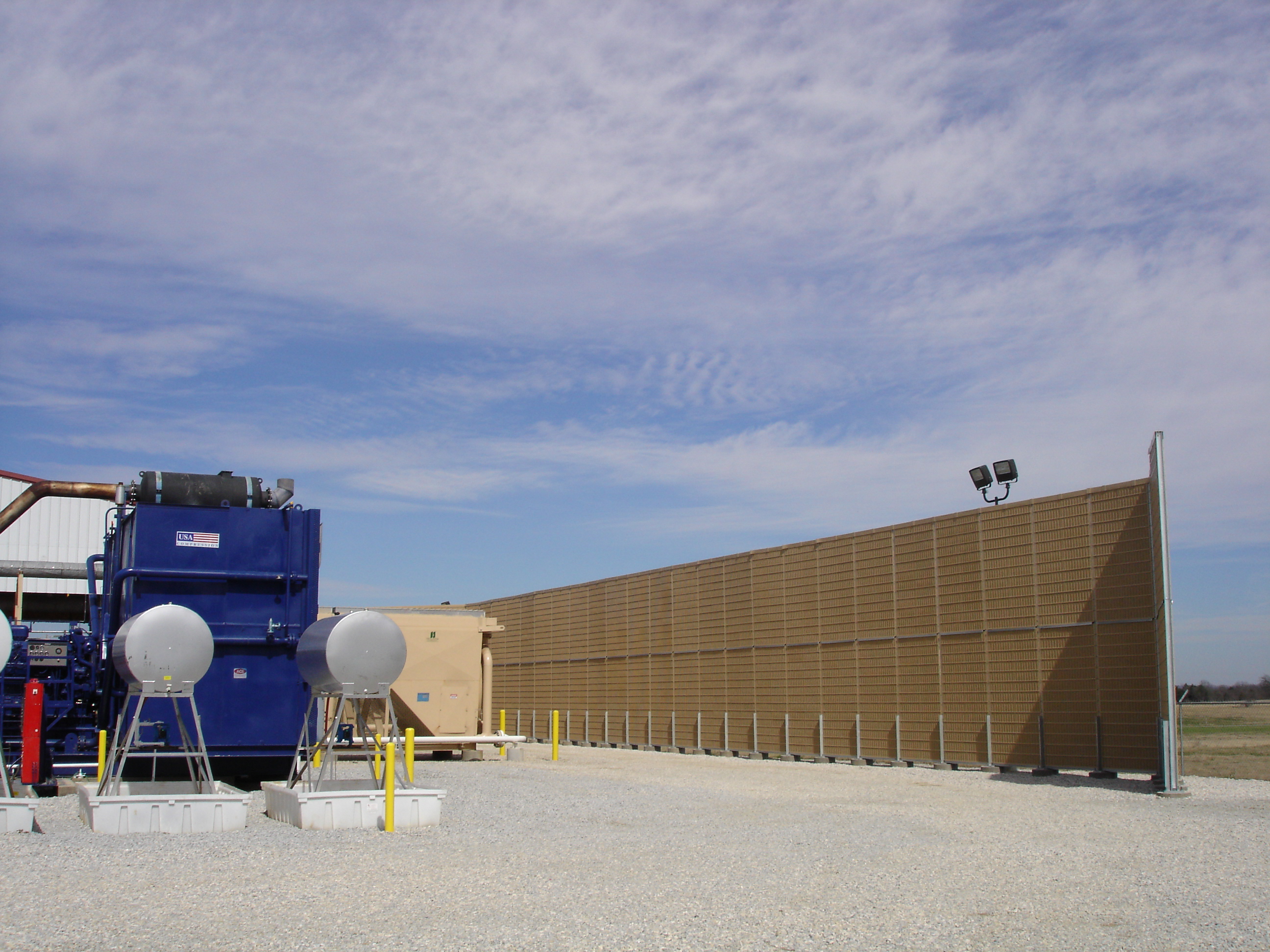The demand for more oil and gas has prompted energy production companies to boost resource exploration and production. As the demand increases, fuel prices naturally rise as a consequence of the increased market pressure. This clamor for more energy has prompted industry players to move their production operations closer to more populated areas, making product delivery more efficient and reducing costs in the process.
However, by doing so, they produce a lot of noise pollution in many urban areas, impacting residents. Due to this, oil and gas companies need better oil and gas sound barriers to boost noise attenuation while operating their heavy equipment.
Reliable Oil and Gas Sound Barriers and Noise-Absorptive Systems
This area is where the solutions provided by Noise Barrier Walls come into play. Our company produces reliable oil and gas sound walls and sound absorption solutions. We design completely noise-absorptive systems best suited for outdoor use and other applications.
Our oil and gas sound barriers are designed for circumferential placement around gas production and compression equipment. Sound-absorbing wall panels reduce reflected sounds as they are equipped with a porous surface that absorbs and diffuses noise instead of reflecting it across various surfaces.
Effective Gas Compressor Noise Mitigation
Gas compressors used in oil and gas production generate a lot of noise, usually 100dB and higher. Oil and gas sound walls can provide the necessary noise attenuation without using fully enclosed structures. This strategy reduces the need for additional ventilation in your facility.
Flexible Designs for Noise Control
At Noise Barrier Walls, we offer flexible solutions using oil and gas sound barriers that don’t require metal enclosures. Aside from reducing costs, these solutions help to prevent ventilation failure and the breakdown of your production equipment.
Since our oil and gas sound walls offer a more agile solution, they can be used in a wide variety of applications:
- Oilfields
- Onshore drilling
- Gas turbines
- Drilling platforms
- Gas and pipeline processing
- Gas compressors
Does Your Oil & Gas Facility Need More Effective Noise Control?
Noise Barrier Walls can provide reliable and flexible solutions for your oil and gas facility. Reach out today, and our specialists will be happy to answer your questions.
An expanding global demand and expanding domestic energy reserves have fueled renewed interest in America’s oil & gas business. With a growing distaste for our dependence on foreign sources of oil, companies both large and small are scrambling to find domestic reserves in commercial quantities.
This aggressive approach has led companies to search for and produce oil and natural gas, hydrocarbons, in locations previously considered too close to residential and commercial development. And while exploration companies generally go the extra mile to accommodate and appease affected landowners, one issue has proven more challenging than most: Noise.

How Do E&P Companies Reduce Compressor Noise?
There are two primary noise attenuation techniques widely used for compressor systems. One involves a fully-enclosed, sound-attenuated building. The other involves a high-performance, sound-absorptive peripheral noise barrier. Both designs are extremely effective at mitigating noise, but there are significant differences between the two. Fully-enclosed buildings are expensive, require massive ventilation systems to prevent heat- and gas-buildup, and they require redundant, explosion-proof electrical and monitoring systems.

Alternatively, a high-performance absorptive peripheral noise barrier also boasts some key features. They provide excellent noise elimination, providing only slightly less attenuation than full enclosures. Having no roof, they do not require expensive mechanical ventilation systems, nor do they create gas or heat buildup. And they are considerably less expensive than full enclosures. Potential drawbacks would include slightly inferior attenuation compared to full enclosures, as well as the lack of protection from the elements.
Which option is best?
In the majority of situations, a high-performance peripheral absorptive sound wall will provide ample attenuation for less cost and fewer moving parts. And in the end, provide a welcome solution for production companies and affected landowners alike.